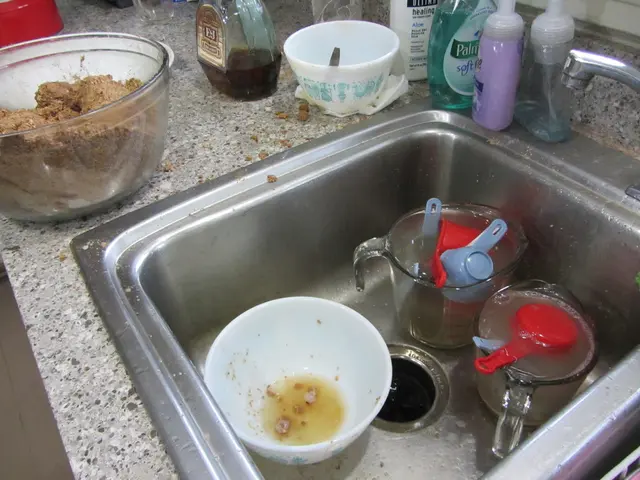Delayed implementation of heat pump tax until 2025
The UK government has announced a delay in implementing the 'boiler tax', initially scheduled to start on 1 April 2024. This decision has sparked a debate amongst environmentalists, industry experts, and political figures, with concerns about the impact on the country's decarbonisation efforts and the affordability of the transition to low-carbon heating solutions.
The 'boiler tax' was created to encourage households to use greener heating methods instead of traditional gas boilers. However, the delay is intended to make it easier for households to qualify for a £7,500 heat pump grant, a move that has been welcomed by some but criticised by others.
Doug Parr, policy director of Greenpeace UK, has labelled the delay as a "deeply damaging step backwards" and a potential threat to the UK's net zero targets. Environmentalists argue that the delay may hinder the UK's efforts to meet its emissions targets, as the 'boiler tax' is seen as an essential tool to drive the decarbonisation of heating, one of the country's largest carbon emission sources.
On the other hand, Mike Foster, chief executive of the Energy and Utilities Alliance, views the delay as a political tactic rather than an attempt to promote greener heating systems. Foster raises concerns about the public's dislike for the 'boiler tax' and its potential disproportionate impact on the least well-off, suggesting a need to revisit the policy before it causes harm to British companies and workers.
In anticipation of the 'boiler tax', manufacturers have been increasing the costs of gas boilers by up to £120. This move, paired with the delay, may further complicate the transition for households, as the financial incentives to switch to low-carbon heating systems may become less appealing.
However, the government's broader Warm Homes Plan and investment commitments (£13.2 billion) aim to address these issues by increasing grants and financing options. Complementary government support schemes, like ECO4 and the Boiler Upgrade Scheme (BUS), provide free or subsidised access to low-carbon heating equipment to ease the transition for consumers and reduce upfront costs.
Despite the delay in the 'boiler tax', the amount a household can qualify for to help with heat pump installation costs has been increased to £7,500 by the Prime Minister, Rishi Sunak, in October 2023. Additionally, cavity wall and loft insulation will no longer be mandatory for households to qualify for the grant.
As the UK navigates its transition from fossil fuel heating to low-carbon alternatives, balancing environmental ambition with economic and social realities presents a significant challenge. The delay in implementing the 'boiler tax' underscores the need for aligned policies that combine financial incentives, consumer protection, and regulatory clarity to accelerate clean heat adoption.
[1] Energy UK. (2023). Boiler Upgrade Scheme. Retrieved from https://www.energyuk.org.uk/policy/policy-areas/low-carbon-heat/boiler-upgrade-scheme/
[2] Department for Business, Energy & Industrial Strategy. (2023). Warm Homes Plan. Retrieved from https://www.gov.uk/government/publications/warm-homes-plan/warm-homes-plan
[3] Department for Business, Energy & Industrial Strategy. (2023). ECO4. Retrieved from https://www.gov.uk/government/publications/eco4-energy-company-obligation/eco4-energy-company-obligation
Read also:
- Innovative Garments and Accessories Producing Energy: Exploring Unconventional Sources for Renewable Power
- Stratospheric Blockchain Network Debut by World Mobile and Protelindo
- Essential Charging Infrastructure for Electric Mobility in Neu-Isenburg Remains Crucial
- Visionary Travel Company Soaring High with Green Aspirations








